The following article includes references to sexual assault, physical abuse, self-harm, and suicide.
Actress AnnaLynne McCord has made a name for herself playing vivacious vixens on TV.
“My passion project is fighting human trafficking.
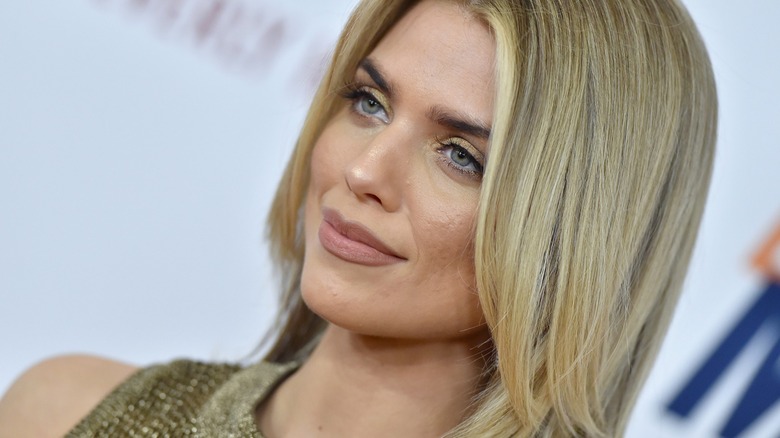
McCord has survived more abuse than most people can imagine; starting from her childhood.
Today she is a strong, outspoken individual who is channeling her horrific past experiences into bringing about change.
But her road to recovery was a hard and long one.
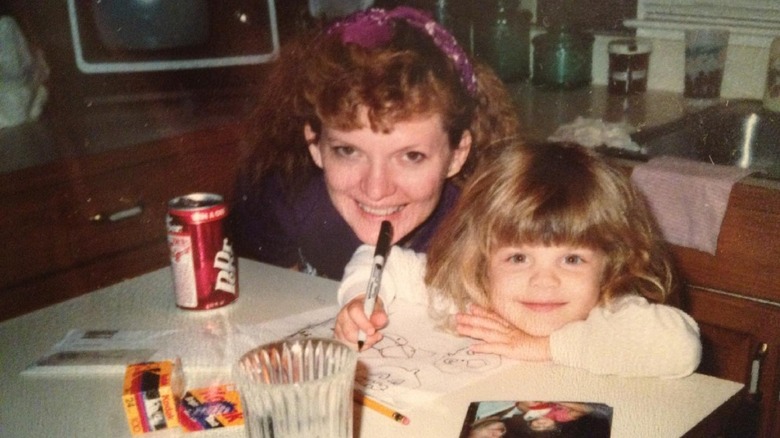
Here are the tragic details of AnnaLynne McCord’s life.
Her father was a nondenominational Christian pastor and her mother homeschooled McCord and her sisters.
According to McCord, she was deprived of many quintessential childhood experiences due to her family’s religious beliefs.
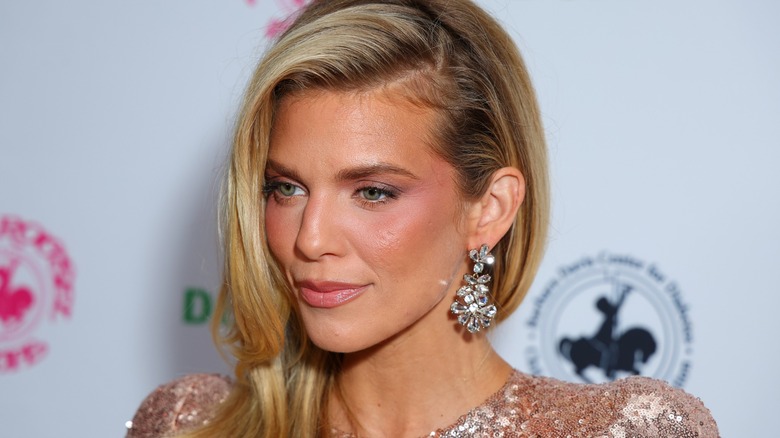
“Content like Harry Potter was forbidden because it was about witches and magic.
“It was like we were living in 1902,” she wrote.
McCord was only 15 years old when she left home and moved to Miami to pursue a modeling career.
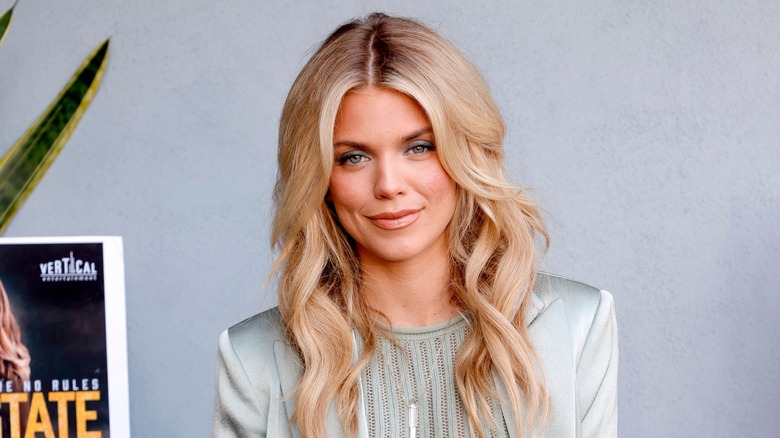
By then, she had finished her homeschooling, and her parents had gotten divorced.
According to McCord, she struggled with the conflicting nature of her parents' actions.
On one hand, she felt they loved and supported her and always encouraged her to follow her dreams.

On the other, she felt they hated her because of the pain they inflicted on her.
“I would tell myself, ‘Maybe it’s not so bad,'” she wrote.
Eventually, McCord’s boyfriend encouraged her to confront her parents about her trauma.

“I went home and told them, ‘What you considered discipline, I considered abuse.’
My dad cried; my mom seemed to be in denial.
But it was an important step,” she wrote.
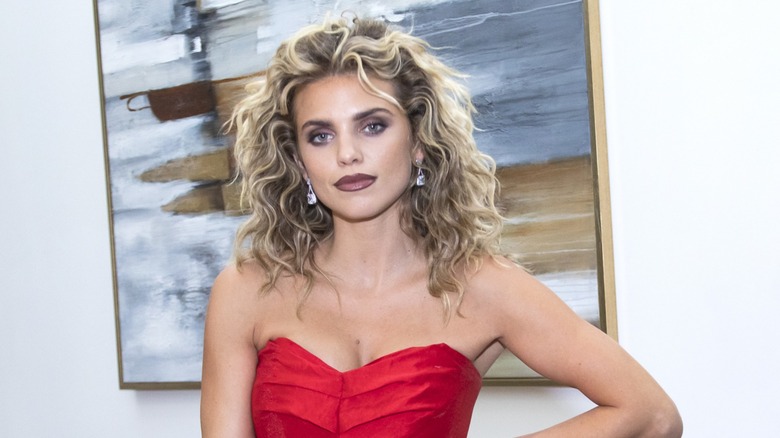
But growing up in a controlling Christian household had warped her beliefs of what constitutes good and bad.
She felt guilty for having normal feelings of lust and acting on them.
“I became sort of promiscuous but didn’t actually have sex.

I’d get right there with the guy and then stop, thinking I’d go to hell.
Then I’d go to church to cleanse myself,” she wrote.
She also found herself seeking out violence in her romantic relationships.

She claims she would be violent toward men to make it elicit a violent response from them.
“I would slap the guys, antagonize them, until I believed they wanted to hit me.
My sexual relationships were dark and violently dramatic.”

She also struggled to differentiate between sex and love.
“I wanted to be loved.
I thought I had to [have] sex with someone to be able to be loved.
“When I woke up, he was inside me,” she wrote in Cosmopolitan.
I didn’t believe I had a voice.”
She didn’t tell anyone what happened.
When she ran into her attacker at a club, he denied that the incident wasn’t consensual.
He even told people she was in love with him.
If you or anyone you know has been a victim of sexual assault, help is available.
Visit theRape, Abuse & Incest National internet websiteor contact RAINN’s National Helpline at 1-800-656-HOPE (4673).
But inside, she was struggling with feelings of guilt.
“For 10 years, I thought it was my fault,” she toldBBC.
“I didn’t fight back.
(Note: It is never your fault.)
She resorted to self-harm to cope.
After seeking professional help, McCord finally came to the realization that she wasn’t to blame.
She dispelled the myth perpetuated by society that sexual assault happens when women put themselves in dangerous situations.
“I was in my own home.”
AnnaLynne McCord contemplated suicide
AnnaLynne McCord has been open about her suicide ideations following her sexual assault.
She never sought help, and a volatile relationship she was in at the time worsened her mental health.
She stayed in bed for days and eventually contemplated taking her own life.
“I … thought seriously about killing myself.
I didn’t fear death it felt like a solution.
When you’re in that mode, you don’t think suicide is a selfish thing to do.
You think you’re doing everyone a favor,” she wrote in Cosmopolitan.
A phone call from her sister changed her mind and saved her life.
Her sister hopped on the next flight to Spain to be with her.
Eventually, McCord sought professional help and started to deal with what happened to her.
McCord is referring to her work with human trafficking survivors in Cambodia.
Girls as young as 4 are either kidnapped or sold into the sex slavery.
“They became my friends, my sisters.
Through helping them heal, I began to heal myself.”
If you or someone you know is struggling or in crisis, help is available.
Call or text 988 or chat988lifeline.org.
The character Naomi Clark, played by AnnaLynne McCord, is raped by a faculty adviser at school.
She also spoke about it toPeople, saying, “I just broke.
“[T]he storyline gave me an opportunity.
I talked to viewers about rape, and I heard from young women across the country.”
During her treatment, she uncovered a repressed memory of childhood sexual abuse.
“It was this frozen image in my mind,” she toldUs Weekly.
“I’m being slammed in the face with blackness.
… My clothes are down, it’s not good.”
At first, McCord wasn’t sure what she was recalling.
It started when she was young, and went on until she was 11 years old.
“I remembered … and my whole life changed,” she said.
“I am love, and I’m [a] storm.
We’re here to break cycles and break chains.”
She was diagnosed with dissociative identity disorder
AnnaLynne McCord wasdiagnosed with dissociative identity disorder (DID).
“It is not that,” she said.
“You don’t have multiple personalities; you have fragments of yourself.
There’s AnnaLynne, who you’re talking to right now, right?
And I just opened Pandora’s box.”
DID is often because of childhood trauma as a way for the brain to protect itself.
She also spoke about the stigma surrounding mental health diagnoses.
“There is nothing about my journey that I invite shame into anymore,” she said.
Another one of the DID symptoms that McCord suffers from is gaps in autobiographical memory.
“I don’t have anything until around 5.
Then from 5 to 11, I recount incidents throughout,” she said.
“Dom created space for me but he called me the f*** out.
He did not take bulls***, and that’s why I trusted him.”
she told Giddy’s Marissa Sullivan.
“I trusted no masculine energies, I trusted no men.
And if you cave, I can’t trust you.'”
Purcell also had a traumatic childhood, and the actress believes they bonded over their similar experiences.